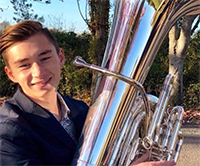Lessons learned responding to the COVID-19 pandemic
adrianaWashington State University has made dramatic changes to its operations in response to the COVID-19 pandemic.
In-person classes across the system moved to online delivery. Vital student services, including academic advising, tutoring and career services, followed suit. Many employees made the adjustment to working from home, while others continue to report in-person in order to keep essential operations running smoothly.
In the course of responding to the ongoing public health emergency, lessons have been learned that will be relevant even after the return of normalcy.

“Though many classes are settling into a groove, we are still facing a number of technical challenges specific to students who for one reason or another lack access to broadband internet or to computers necessary for specific types of learning,” Matt Jockers, dean of the College of Arts and Sciences, said.
WSU has stepped up to this challenge by lending laptops to students and is working to make Wi-Fi available at Extension offices across the state.





